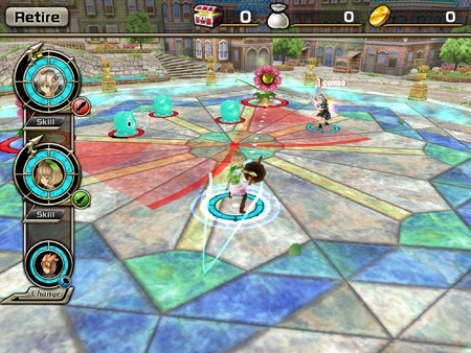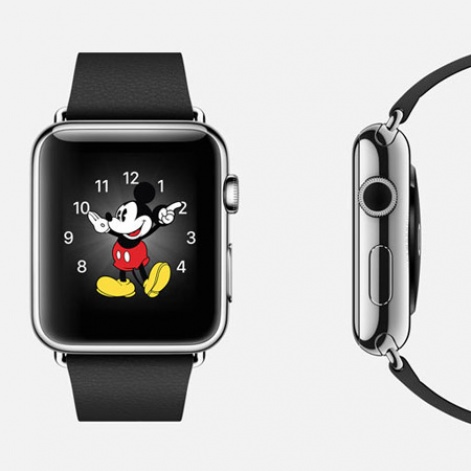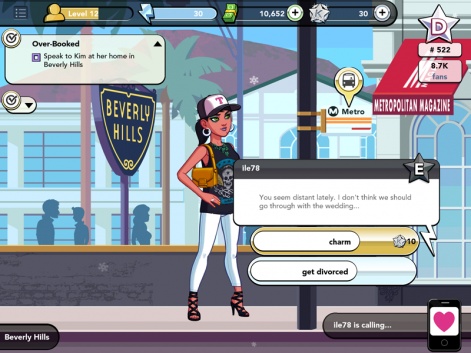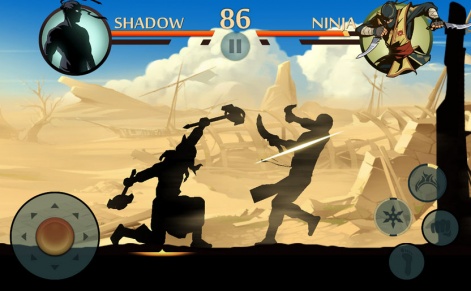[Updated: Now with added Dmitry Terekhin and David MacQueen]
It's a brand new year so time to give our Mobile Mavens a clean slate on which to project their thoughts on how 2015 will shape up in terms of the mobile games industry.
So, we asked then:
What do you expect to be the key trends/news for the mobile games industry in 2015?
And what do you hope could be the key trends?

A games programmer before joining Sony’s early PlayStation team in 1994, he then founded developer Pure Entertainment, which IPO’d and launched a free-to-play online gaming service way back in 1999.
He was also a director of pioneering motion gaming startup In2Games, which was sold to a US group in 2008.
Along the way, he’s been a corporate VP, troubleshooter, and non-exec to a variety of companies and investors in and around the games sector.
Harry was European CEO of Marvelous AQL, a Japanese developer and publisher of social, mobile and console games, known for console games like No More Heroes and Harvest Moon, but now highly successful in the free-to-play mobile and web space in Japan and Asia.
Harry is CEO of Magicave.
I think we'll finally see more dynamism at the top end of the grossing charts, as developers get more familiar with what works to keep players playing and what doesn't.
We'll also see more examples of companies having a big hit and then going for growth in an unsustainable fashion, along with a lot more acquisitions of those games and teams that deliver the goods.
It's great to see that some western developers are looking east, understanding the games there, and bringing some of those lessons to the western markets. We'll also see a continued push the other way, with increasingly western-friendly games coming out of Japan, China and Korea.

We're still not seeing cutting edge 3D being a factor in determining where in the grossing charts a game sits.Harry Holmwood
I wouldn't be surprised to see some more very big console/PC-style mobile games fail - certainly in the west it seems that players of MOBAs and the like prefer to play on a big screen than a mobile, so maybe we'll see mobile experiences for traditional PC/console gamers that are a part, rather than the whole of, a bigger multiplayer game experience.
The thing that fascinates me the most is where we go with all the power that's now available in phones.
We're still not seeing cutting edge 3D being a factor in determining where in the grossing charts a (F2P) game sits. Whereas the console and PC games business has always been driven by tech-hungry, graphics-rich applications, this just might not happen with mobile.
Certainly I'd prefer a battery life increase over a faster GPU next time I need a new phone, which may not be this year - my 2-year-old Nexus 4 still seems perfectly capable of playing whatever I throw at it.

John is co-founder of PR and marketing company Big Ideas Machine. Also an all-round nice guy...
I certainly agree with Harry that the developers that thrive are the ones working out how to extract the maximum revenues from their audiences, but I am not sure that this will lead to dynamism at the top of the app charts - rather, I fear continued stagnation, as the games that are mega-hits continue to sit at the top.
I expect more Clash of Clans clones, even more Hearthstone-style card battlers, and a wave of Vainglory-inspired MOBAs.John Ozimek
This is more a problem with the charts than an issue with games - but it is still the same problem we've had around discovery for going on ten years now.
I expect there to be more and bigger franchises built around the currently successful game styles - so that means more Clash of Clans clones, even more Hearthstone-style card battlers, and a wave of Vainglory-inspired MOBAs.
We'll see if any of them can grab a slice of the audience from these established behemoths.
We'll probably spend some time navel-gaging about the problem of rising acquisition costs - mirroring what happened with Facebook gaming a few years ago. This may prompt some developers to shift away from F2P and back to premium, and I hope there will be more than lip service paid to brand building over an obsession with marketing based only around CPI and CPA.

I confidently predict that we'll talk about VR and wearables, without an awful lot happening - it's still too early in the technology cycle for there to be real revenues for games companies to invest in exploring this space.
And there will be the annual 'Apple has changed its developer policies' event that will set the cat amongst the pigeons - probably in the mobile advertising space.
I suspect that 2015 will be a very difficult year for Samsung.John Ozimek
Finally, I suspect that 2015 will be a very difficult year for Samsung, with more home-grown Chinese brands launching identikit Android handsets.
In theory, this will give Microsoft a great opportunity to really push its own hardware and apps ecosystem, but for that to work there needs to be something to prompt consumers to shift away from Android and Apple, which right now I can't see happening.
And of course, something will happen that none of us predict that we will all be talking about in 12 months time.

Oscar Clark has been a pioneer in online, mobile, and console social games services since 1998. He is also author of the book, Games As A Service – How Free To Play Design Can Make Better Games.
I think I agree that there will be more stagnation at least in the mid-term. We will probably see various game clones becoming 'genres' and 'brands' (that's only in quotes as I suspect there will still be too few true brands that my old marketing lecturers would have considered meet the criteria).
I don't agree with John that this is the same discovery problem we have had for the last 10 years... 4 years perhaps.
The experiences of Crossy Road seem too interesting to ignore.Oscar Clark
The scale of the noise of other apps is so vast and the phenomena of games being able to sustain their ranking through paid advertising makes things very different to me than the pre-AppStore days.
There will be more innovation in discovery I suspect and I’m (obviously) convinced that social video discovery through YouTube/Twitch/Everyplay/etc will play an increasingly important part of the process.
The experiences of Crossy Road, in particular, seem to be too interesting to ignore.
For me that means that the kind of branding building we should be talking about will be much more socially driven and based on a foundation of community.
The ability of PewDiePie and other YouTubers to cross the boundaries between web and mobile to drive downloads astounds me and I think that the boundaries between the different devices we use to access the web will become increasingly irrelevant.
But, does that mean WebGL/HTML5 gaming will break through into mobile - perhaps not yet… but I'm more positive about this area than ever.
John does have a point that the increase costs of acquisition will affect game design, but I don’t think that necessarily means a shift away from F2P (indeed I suspect that would backfire horribly) instead what I think that will demand is greater innovation in F2P.
I’ve always said that I think this model is Darwinistic and perhaps at the end of this year we will start to see the fruits of this. Its time that we saw people use the model to make better games.
I think last year I predicted that we’d have around three new top grossing games (I can’t find the original article, so maybe being a little revisionist), and whilst I was sort of right we saw little turmoil in the upper top grossing spots.
This suggests to me that the market has stabilised greatly and that the top grossing games are able to consolidate leads by having such a solid user base, great monetisation and awesome UA capabilities.

So, my tendency is to say that 2015 will see Candy Crush Saga, Clash of Clans, Game of War, Hay Day, Kim Kardashian and The Simpsons stick around with a few more joining the mix and rising up the ranks.
My expectation for a surprise is a wholesale underestimation of smartwatch from the games industryWill Luton
I would be very surprised if one of those wasn’t top grossing for Christmas 2015. Even if my hope is that things get mixed up and we see widespread disruption.
My expectation for a surprise is a wholesale underestimation of smartwatch from the games industry. Some of the rhetoric is much like that of early smartphone
- Why would I want to play on a smaller screen?
- I’m not going to charge it everyday
- But I own a console/phone already, why would I want to play on a phone/watch?
...And misses the big picture.
For me, replacing a dumb watch with something that has a utility is a no-brainer. And if it is games-capable, then games will feature prominently.

Oscar Clark has been a pioneer in online, mobile, and console social games services since 1998. He is also author of the book, Games As A Service – How Free To Play Design Can Make Better Games.
Totally agree on smartwatches (and I love my new Samsung Galaxy Live!)
But I feel that's going to be next year... Good time to start a small team perhaps?

Oscar Clark has been a pioneer in online, mobile, and console social games services since 1998. He is also author of the book, Games As A Service – How Free To Play Design Can Make Better Games.
I just feel it's too early and that the platforms aren't 'quite' yet fit for purpose.
I've used - in earnest - Samsung's Tizen and Android Wear devices now (didn't like the Pebble and have yet to see Apple's Watch in the wild) and they still seem like the Diamond Rio did for MP3 players in '99/00 or the MOT A1000 Smartphone in 2005.
By Xmas 2015 about 30 percent of smartphone owners will have (or be unwrapping) a smartwatch.Oscar Clark
Both great for their time but really just a precursor of the real thing which was to come.
And like those devices, I think its less about the technology and more about the cultural shift needed. You said it yourself the responses I get like....
- Why would I want to play on a smaller screen?
- I'm not going to charge it everyday
- But I own a console/phone already, why would I want to play on a phone/watch?
I also feel we need few more software and form-factor updates based on everyday-use rather than idealism.
For example the dropping of the camera on the Samsumg Galaxy Gear was a shame. Not because in its original form it was any good, but because there is a functional space it could naturally fill (e.g. live personal video bogging). It will take a few more iterations to work through the real potential.
All this feels like at least a year away to me. I suspect by Xmas 2015 about 30 percent of smartphone owners will have (or be unwrapping) a smartwatch and after that I think things will explode.

John is co-founder of PR and marketing company Big Ideas Machine. Also an all-round nice guy...
Oscar - agree with pretty much everything you say (except, of course, the bits you disagree with me on) especially on the potential for YouTubers and other social media 'natives' to disrupt discovery and potentially games journalism.
However, I don't yet see any methodology behind the ability for companies to harness these channels in a reliable way.
The idea of creating viral content to order is something which fills me with dread whenever a client mentions it, and as PewDiePie himself has talked about, there are already companies trying to commercialise video reviews in a way that enters an ethical grey area.
So as much as I am excited (and, to be honest, bewildered) by the potential of this stuff, I see a risk that as soon as companies they to use it as a promotional tool, it will destroy the values behind it that makes it so effective - and trusted by viewers.

Oscar Clark has been a pioneer in online, mobile, and console social games services since 1998. He is also author of the book, Games As A Service – How Free To Play Design Can Make Better Games.
No argument from me there John - authenticity is essential and creating a formula for that creates a disheartening paradox. However, I think there will be a middle ground and transparency of where the funds come from will have to be part of that.
Social video is becoming a vital marketing channel, like any other with its own rules, formats, and peculiarities around what can most effectively be communicated.
Even TV ads have to have a level of trust to be effective - except perhaps Wonga or The Money Shop.
Perhaps you are right after all!
Smartwatches will take off this year - that's why we've invested heavily in it! I am sure we will see new kind of genres on those new "toys". Innovation is what we need. We will bring in more and more fitness games.
2015 will be a M&A year for mobile gaming.Christopher Kassulke
I don't want to see another clone of a clone. I am quite sure we will see those during the whole year but most of them will just burn investors' money and will not hit a huge target audience. I don't care about the charts anymore. Just imagine the same movies or music charts months by months or year after year. It's just boring.
2015 will be a M&A year for mobile gaming. The big names will look for talent, IPs and innovation. Also eastern companies will realize that they have to buy into the western market so they will buy established studios for a footprint in the market. So it will be very interesting for indies as well as small and midsize studios.
The established developers will release more and more sequels as they are a safe bet compared to building up new IPs. Also the studios will release on more platforms and try out new markets.
Android TV will be getting more and more interesting. Sony and LG already announced support for it during CES and also Razer is releasing an Android TV box.
I am also sure we will see more and more premium games again.
- The rise in the cost of acquiring users, which now exceeds their lifetime value for the vast majority of titles, will eventually cause a backlash against “the conventional marketing wisdom”. You’ll see (as with Kim Kardashian) more and more branded game deals.
- We’ll see a few more “flappy birds” ... titles that come out of nowhere.
- A major triple-A console title will ship on mobile at release i.e. the console and mobile games will be of the same design and will ship at the same time.
- HTML5 games may gain traction, over the frustration over Apple/Google policies. It's already the case for real money casino games on Android and adult-themed stuff.
- There will be less VC dollars for mobile game startups. The odds stink.
- Hardware accessories that make location-based stuff fun
What cynical logic suggests...
I think we're looking at mainly incremental commercial, creative and technical innovation for the next 12 months. What that means, IMHO, is that:
The established mobile publishers will generally remain dominant; merely shifting their top 10 positions every now and again. However, I do think that the older games publishing names will begin to get their act together (learn from the mistakes of 2013/14) and start to leverage all that legacy IP (or expensively-licensed brands) and make serious inroads into the mobile games market. The cost of paid UA and, more importantly, of developing longer term sustainable brands is going to be a major determinant of commercial success going forward.
The levels of graphical fidelity and technical innovation/ambition will continue to rise and as such team sizes and project costs will increase significantly. This will add to the barriers to entry to new/smaller studios (on top of the very high marketing costs).
We will see £5-10 million dev project budgets as commonplace (whereas £50-250,000 was probably the norm just 2 years ago).
We will see £5-10 million dev project budgets as commonplace.Kevin Corti
Smaller/new studios will *attempt* to diversify, particularly into wearables; I don't expect any great (relatively speaking) commercial successes for games on smartwatches in 2015 but I do think this will be the year in which much initial market and product experimentation will take place that will yield commercial successes in 2016. There is far too much private equity funding already in the wearables space for there not to be a plethora of new games for the various platforms. If enough people have a new powerful device strapped to their wrists, I do believe that eventually some studios will come up with games that offer something new, interesting and desirable to those consumers and that money will be made.
Many smaller studios will switch away from own IP to work for hire when they finally realise that they cannot go toe-to-toe in the app stores with SuperKingEAGluGungHoLineDisneyZynga.com but naturally many will either get absorbed into larger companies (who will need bigger teams) or wither and die (there isn't enough work for hire projects to support the sheer number of mobile games studios).
We will see more HMTL5 efforts – driven by the commercial constraints of the major app stores, largely in relation to cost of user acquisition and cost of creating and supporting different native apps.
And what I hope for:
I very much hope that the platforms take a more consumer-focussed viewpoint and ask "how can we help consumers by making it much easier to find cool new games?"Kevin Corti
I very much hope that the platforms take a more consumer-focussed viewpoint and ask "how can we help consumers by making it much easier to find cool new games?" and build proper search, recommendation engines and other discovery channels to drive commercial, technical and creative innovation. Note: this is unlikely to happen.
In a supremely-ironic turn of events, the competition amongst YouTube celebrities to acquire and retain eyeballs will drive them all to spend 90% of their rapidly escalating ad and sponsorship revenues on commissioning small indie devs to make branded marketing apps to drive UA. Note: this patently won't happen but wouldn't it be great if it did?
Someone makes a gazillion bucks with a mass-casual, low fidelity, 'simplistic' game which comes out of nowhere with zero marketing/UA budget, which almost every well-known games industry commentator derides but which gets 500 million installs across all major mobile platforms and thus gets us all secretly wondering; "Do any of us actually know what the feck we're talking about?"
Note: I will laugh into my 8th pint of vodka and grapefruit juice if this happens... and it probably will!
I predict that, in the year 2015, for the first time in my ancient life, I will employ the word "feck," the context being, "Do any of us actually know what the 'feck' we’re talking about?"
I think 2015 has got to see some significant changes to the indie game dev scene. There are over 300,000 games on the app store (according to Pocket Gamer) nut how many have you ever played?
I probably have about 100 installed at any point in time and that means I have probably played about 500 in total. A quick poll in the office suggests that these numbers are probably high.
Without a relationship with Apple/Google or a marketing war chest, it is nearly impossible to be successful any more on mobile.John Griffin
Anyway, the point is that without a relationship with Apple/Google or a marketing war chest, it is nearly impossible to be successful any more on mobile. I am conscious that people define success differently and not everyone is looking for the same thing.
Indie studios intent on pursuing a self-publishing strategy are going to have to broaden their strategies. Many will, as I think Kevin said, take on more 'work for hire' projects to pay themselves - most will revert to the publishing model to get access to the required marketing funds.
We will see many more mobile-savvy publishers emerge in the mould of 505 Games. Indies, still intent on self-publishing, will need to look to PC/consoles first. The new Steam consoles being unveiled at GDC should have a big bearing on this.
Development budgets are also going to have to increase as scope and quality advances will be required to compete further driving many indies back to the publisher model.

Premium will continue to live happily alongside freemium/F2P, but only innovative new titles (the likes of Monument Valley and The Room) will be able to maintain premium rates as most other formats are easily copied, improved and offered for free.
We are likely to see (have got to see) an increase in the sophistication and adoption of tools to help developers optimise games. That's probably good for the likes of us as we roll out new optimisation tools (segmentation, experimentation etc) on top of our existing offering (sorry for the plug but it is my job!).
Developers who can demonstrate understanding and ability to optimise the ROI with a data-driven approach are more likely to get success with the publishers. Does anyone still think they can predict success in mobile games without data to back it up? Hands up if you would have rubbished Flappy Bird the first time you saw it.
And Zynga, once again, to dominate the mobile charts as they progressively acquire brand rights and apply their rich social gaming experience to mobile. Looney Tunes is just the tip of that iceberg I would say.

John is co-founder of PR and marketing company Big Ideas Machine. Also an all-round nice guy...
John - do you not think though that the over-saturation of the market and the tiny chance of having a hit means that the traditional publisher model simply won't work in the current market?
F2P, at the top end, drives big revenues but requires high acquisition spend. I don't profess to know this stuff in detail, but I can't see how the numbers would stack up if you need to divide the revenues between publisher and developer.

I agree that more licensed big IP could change the current dynamic, but the market is so driven by quality and a low or zero price point, it's going to be a rich or very brave company that gambles the high cost of big licenses.
I know that Glu is now a very different company today to when I was there (9 years ago! I feel really old) but for the success of licensed IP like Deer Hunter, there were deals that were terrible or at best scraped through to profit. And that's when development costs were minuscule to what they are today.
For every Kim Kardashian, there's a In her Shoes: High Heels Majong.
The traditional publisher model probably won't work and I didn't mean to imply that the relationships between developers and publishers would look the same as they did in the old days.
Many of the traditional publishers have struggled to adapt to mobile/F2P as we know, hence why the list of top 10 games companies has names in it that did not exist 5 - 10 years ago. Clearly there are a lot of publishers (and indeed indie developers) who do get this and will continue to do well.
The fact there is profit means there is a potential pot of money to divide up, right? It's just the publisher might argue they need to get back the marketing spend before they divvy up the spoils. They also have a lot more developers/games to choose from so they may insist that developers have done more on the optimisation front before they agree to allocate the marketing budget.
All-in-all, the one thing that will remain traditional is that the relationship will be pretty biased. Capital is king.
Making games based on average movies can't ever be a good strategy can it?John Griffin
I am depressing myself responding to you. I 100% believe in and support the indies and there a LOT of them who will do well without a publisher. I know a lot of games from indie studios with medium user bases that do well financially. The tail of F2P games that make money may be longer than we think.
It's just that of the 500+ indie studios in the UK alone, I think 300 of them will struggle to successfully self-publish without adapting their strategies significantly.
Making games based on average movies (that's being kind) can't ever be a good strategy can it? There is a world of difference between In Her Shoes and Bugs Bunny.
Now that's one we could have all called right without data.
[people id="11" name="Brian Baglow"]
In 2015, let's stop making games and instead make all apps more game-like.Brian Baglow
I hope that 2015 will mark the point where the definition of 'games' will blur and we can stop thinking purely about rescuing princess, flinging birds, collecting coins or endlessly running, and instead get on with revolutionising the wider app market, making entirely new experiences that are far more playful.
Seriously. One of the major issues for games developers is what they won't do.
Work for hire is crucial, but the industry seems to limit itself to certain types of experience or forms of content, rather than embrace the wider opportunities out there and make things which are far more playful and which use the incredible enagagement and fun which games are capable of.
In 2015, let's stop making games and instead make all apps more game-like.
[/people]
I want the TV connected to all of our mobile devices at the same time. What makes us unique is the choices we make, and what creates deeper human connections is when we share it.
I also expect more emotional game experiences, especially for mobile. We had a couple of great mobile experiences in 2014 but nothing of the caliber of console/PC yet. Many developers are on the border and I think one will hit that won't be fear or fun-driven.
e-Sports for mobile: will mobile finally have its League of Legends moment? I don't think it will be a MOBA to do it.
Adding in a legal penny’s worth: mobile games will continue to become more regulated in uncoordinated and haphazard ways around the world.
The UK consumer regulator will enforce its free-to-play principles for the first time. Germany will make another hardline move in this space. The EU will probably make noises about mobile games but do not much. That won’t matter because the introduction of the long mooted data privacy reforms in the EU will have a big impact on mobile across the board.
Finally, the US Federal Trade Commission will get serious about regulating mobile games developers, having until now focused (somewhat randomly) only on the platforms.
We may not like it, but greater regulation has been on the cards for a while now and neither the platforms (except Google) nor the wider industry have done much to ward it off.

In 2002 Dmitry Terekhin founded Moscow-based Nekki with a focus on creating original, quality gaming content for mobile and social platforms.
The company has released the popular games Shadow Fight, Shadow Fight 2, Vector, and others, earning more than 160 million installs to date.
Dmitry graduated from the Moscow Engineering and Physics Institute with a degree in mathematics and systematic programming, and received his MBA from the Skolkovo School of Management in 2014.
I believe the biggest trend of 2015 is midcore gaming - taking hardcore genres/mechanics and making them more casual will be a good strategy for developers.
But the lust for quality will also increase. Traditional casual games will suffer and new midcore games will start attacking top grossing charts. Hearthstone may be the first candidate.
The lust for quality will also increase.Dmitry Terekhin
Technologies will continue to evolve and it will give new opportunities to the developers. We will see better 3D games on mobile and more cross-platform successes, thanks to Unity. Also technologies will allow new mechanics - more realtime player-versus-player or cooperative game modes.
Marketing trends are harder to predict. I believe that marketing costs will continue to grow and traffic acquisition will become a bloody battlefield. But midcore games will avoid this battle, because the quality, uniqueness and loyal audience of such games will cause a word-of-mouth effect which will generate them millions of free downloads.

Talking about our company Nekki, we make a bid on these trends.
We are planning to release three midcore games in 2015:
- Vector 2 - sequel to our hit parkour game, but shifted more to a roguelike-like genre,
- 11x11 - a football manager based on our browser-based/social franchise, and
- Shadow Fight 3 - the next part of our fighting game, now in full 3D.
All games will be made with Unity and will be cross-platform. And we still trust our audience to create the word-of-mouth to spread our games even further.
There’s a couple of things I’d call out, although pretty much everything has been mentioned already:
In our forecasts we have Google overtaking Apple in terms of total revenues in 2015, while Windows Phone is going to become the third largest app store, taking over from the Nokia app store.
We expect Google and Apple to top $20 billion in [gross app store] revenues in 2015.David MacQueen
Although for both Google and Apple we expect them both to top $20 billion in revenues, compared to Windows reaching just over $1 billion, so third place is quite a long way behind the leaders)
I definitely agree that there’s going to be more “midcore” gaming, especially on tablets.
What we’ve seen from our data is a continued increase in the volume of free games (of course) but over the last few months there has also been another interesting effect going on – the average price of a paid download is actually increasing, from $2.68 to $3.09 (this is an average for all apps).
The $0.99 game is getting squeezed – either go freemium, go premium, or go home. There’s less middle ground. The market is dividing between freemium and higher quality premium. I expect this to continue.
Lastly I thought I’d touch on the wearables, even though I personally don’t think there will be much traction in gaming.
We did a developer survey and out of the games developers on our panel, only 10.3 percent are creating apps for wearables, compared to 11.2 percent of our total panel (games developers were 126 companies out of our total panel of 604 developers).
Not a huge difference but a difference nonetheless.
When asked why not, games developers were more likely to say that they might if their app had features which integrate with wearables. I think that the early wearable devices to hit the market typically have features which target health and fitness apps in particular, but they have little functionality for games.
Not that you can’t get a game to run on them, but is a heart rate monitor really a useful sensor for gaming? Maybe it is, but that’s probably going to be quite a niche title...

![[Updated] Mobile Mavens on their hopes and fears for 2015 [Updated] Mobile Mavens on their hopes and fears for 2015](https://media.pocketgamer.biz/2014/9/21336/pgbizmobilemavens400x400-r225x225.jpg)





























